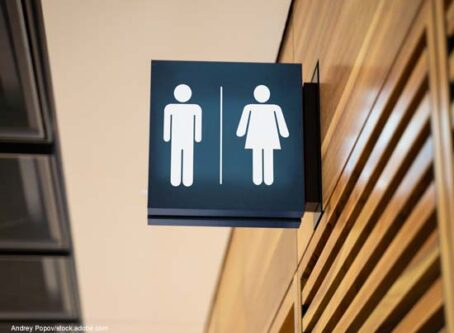Appeals court affirms decision to dismiss OOIDA’s Pennsylvania toll suit
After nearly one and a half years in litigation, a federal appellate court affirmed a lower court’s decision to dismiss the Owner-Operator Independent Drivers Association’s toll lawsuit against the Pennsylvania Turnpike Commission. OOIDA still has options available to keep the lawsuit alive.
On Tuesday, Aug. 13, the U.S. Court of Appeals for the Third Circuit sided with a district court in allowing the Pennsylvania Turnpike Commission and other defendants to dismiss a lawsuit filed by OOIDA alleging unconstitutional collection of tolls. Essentially, the appellate court concluded that Congress did in fact allow Pennsylvania to use toll revenue for nonturnpike purposes.
In their complaint, OOIDA and co-plaintiff the National Motorist Association argue that Pennsylvania’s tolls are excessive, with revenue far exceeding the costs of operation of the turnpike. The lawsuit claims that extra revenue is used for projects that disproportionately benefit local interests. Furthermore, high toll costs deter motorists who do not live in Pennsylvania from using the turnpike.
In a precedential opinion, the appellate court determined that extra revenue used for nonturnpike purposes do not violate the Commerce Clause since Congress has given states permission to use toll revenue for other projects.
OOIDA points out that the Commerce Clause bars states from discriminating against or burdening interstate commerce. However, the appellate court points to a Supreme Court case that ruled Congress can authorize a state to take actions that burden interstate commerce.
“When Congress exercises its power to regulate commerce by enacting legislation, the legislation controls,” the court opined. “Thus, where Congress has spoken and state or local governments take actions that are ‘specifically authorized by Congress,’ those actions are ‘not subject to the Commerce Clause even if they interfere with interstate commerce.’”
In this case, Congress authorized Pennsylvania to use toll revenue for nontoll road purposes.
The Surface Transportation Assistance Act of 1982 provided federal financial support for toll roads under the condition that tolls would discontinue once the state has collected sufficient revenues to take care of outstanding bonds.
However, the Intermodal Surface Transportation Efficiency Act of 1991 eliminated some of STAA’s toll stipulations, allowing states greater flexibility to use toll revenues for a variety of transportation projects. More specifically toll money can be used for:
- Debt service.
- A reasonable return on investment of any private person financing the project.
- Any costs necessary to improve, operate and maintain the toll facility.
- Payments to private parties if the toll facility is subject to a public-private partnership agreement.
Another provision permits authorities such as the Pennsylvania Turnpike Commission to use toll revenues for “any other purpose for which federal funds may be obligated by a state under Title 23,” as long as they certify annually that the toll facility is being adequately maintained.
“Through ISTEA, Congress expressed its ‘unmistakably clear’ intent that the defendants could use toll revenues for nontoll road projects,” the court stated. “Congress’s authorization that toll revenues be used for purposes other than maintaining and operating the toll road, and servicing its debt, necessarily envisions that a public authority can collect funds that exceed a toll road’s costs before it can spend them. Thus, ISTEA contemplated that tolls exceeding the amount needed to fund a toll road would be collected and spent on nontoll road projects.”
OOIDA argues that Congress did not foresee a state increasing tolls by more than 200% to fund nontoll road projects. Rather, Congress was referring to the “nickels and dimes” left over each year.
The court counterargued that nowhere in ISTEA did Congress cap the amount that could be raised. Furthermore, Congress mentioned several expensive projects that can be paid for through excess toll revenue, which “shows that ISTEA did not limit the amount of funds the PTC could collect and spend on nonturnpike projects,” according to court documents.
“In sum, the text is clear: Congress has authorized the states, including the Commonwealth of Pennsylvania, to generate and use such tolls to fund the type of projects listed in plaintiffs’ complaint,” the appellate panel concluded. “As a result, the collection and use of the tolls to fund the challenged expenditures does not violate the dormant Commerce Clause, and the district court properly dismissed plaintiffs’ dormant Commerce Clause claim.”
Regarding the claim that the excessive tolls violate the right to travel, the court found the following:
“Because plaintiffs allege only that the increased tolls have caused and will continue to cause turnpike users to switch to nontoll roads in the future, and not that interstate or intrastate travel has been or will be deterred, they have not stated a claim that their right to travel has been infringed. Therefore, the district court properly dismissed plaintiffs’ right to travel claim.”
OOIDA President Todd Spencer says the fight is not over.
If OOIDA wishes to continue fighting the excessive tolls, it has two options available.
First, it can petition for rehearing en banc. The latest opinion was reached by an appellate panel of three judges. An en banc hearing would include all judges in the court. The Association can also petition the U.S. Supreme Court.









